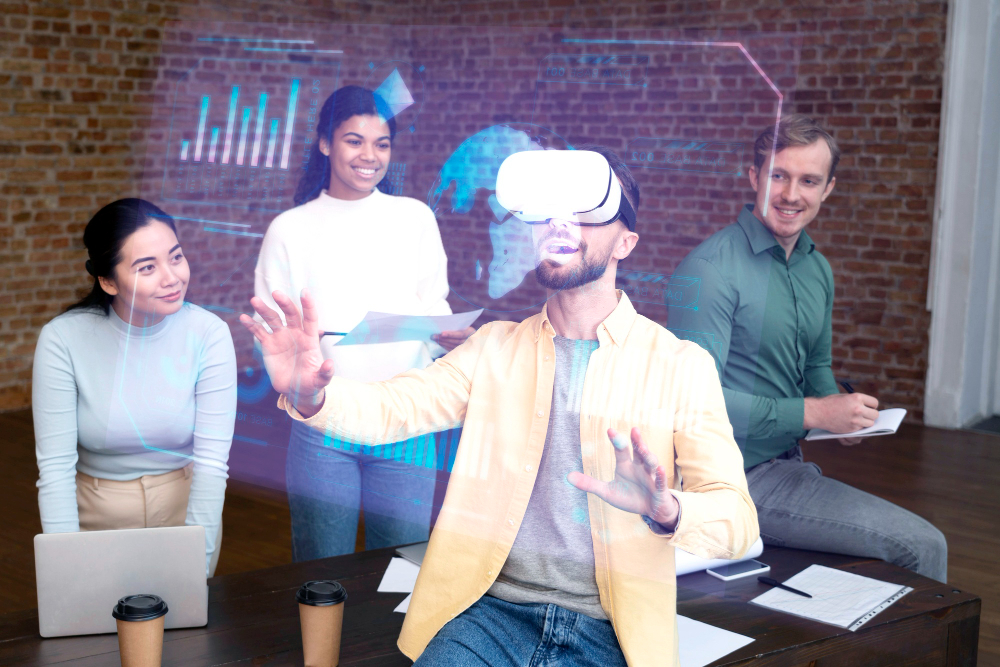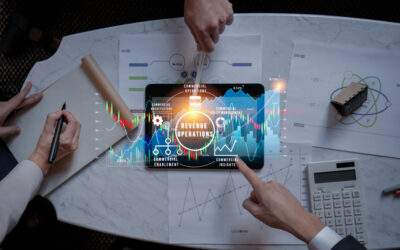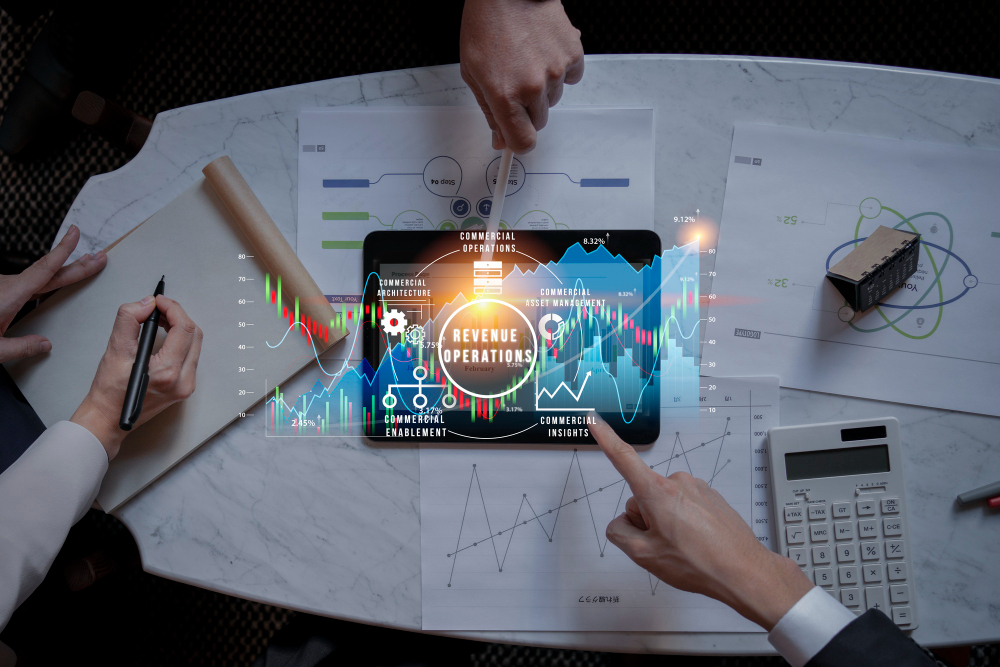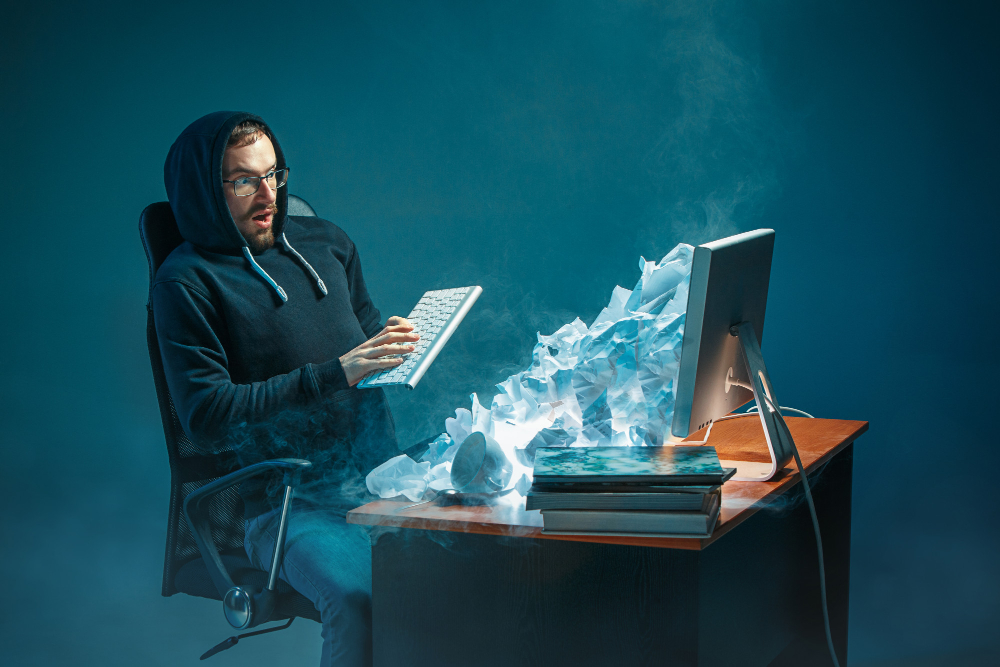Revolutionising Reality: Tech’s Impact on Daily Life

In the blink of an eye, technology has effortlessly integrated into the tapestry of our daily existence, transforming how we work, connect, and perceive the world around us. From the mundane to the extraordinary, the impact of technology is profound, reshaping our reality and challenging the boundaries of what was once thought possible. In this digital age, it’s imperative to explore how tech revolutionises our reality and influences how we experience the world.
1. The Digital Workplace: Redefining Productivity
- The traditional office landscape is undergoing a radical transformation thanks to technology. The rise of remote work, collaborative platforms, and cloud computing has revolutionised our work. The boundaries of the nine-to-five routine are becoming increasingly blurred as employees leverage digital tools to connect, collaborate, and contribute from virtually anywhere on the globe.
- Communication tools like Slack and Microsoft Teams have replaced water with more relaxed conversations, fostering real-time collaboration and breaking geographical barriers. Cloud-based project management tools like Asana and Trello have streamlined workflows, making tasks more transparent and accessible. This shift enhances productivity and challenges the conventional notions of a centralised workplace.
- As we navigate the digital workplace, the task is to strike a harmonious equilibrium between the benefits of remote work and the need for face-to-face interactions. The metamorphosis involves more than just adopting technology; it encompasses redefining the very nature of work itself.
2. Reshaping Perceptions
- Step into a world where reality and imagination collide – welcome to Augmented and Virtual Reality. AR and VR technologies alter our perception of reality by seamlessly integrating digital elements into our physical environment or immersing us in entirely virtual worlds.
- From gaming and entertainment to education and healthcare, the applications of AR and VR are boundless. Companies like Oculus, owned by Meta (formerly Facebook), create VR headsets that transport users into interactive, immersive experiences. Meanwhile, smartphone AR applications overlay digital information onto the real world, enhancing experiences from shopping to navigation.
- However, as these technologies become more sophisticated, questions arise about their impact on our understanding of reality. Are we at risk of losing touch with the tangible, physical world as we immerse ourselves in digital constructs? Striking a balance between the virtual and the real is essential to harness the potential of AR and VR without losing touch with the world around us.
3. The Internet of Things (IoT): A Connected Lifestyle
- Imagine a home where your thermostat adjusts based on your preferences, your refrigerator orders groceries when you’re running low, and your security system sends real-time updates to your smartphone. Step into the Internet of Things (IoT), where standard devices are interconnected, creating a web of convenience and efficiency.
- IoT redefines our daily lives, bringing automation and connectivity to new heights. Smart homes with IoT devices allow us to control and monitor our surroundings remotely, providing unparalleled convenience. Devices worn on the body, like fitness trackers and smartwatches, gather real-time data, transforming how we approach health and wellness.
- While IoT’s benefits are evident, privacy and security concerns linger. The more our devices communicate, the more data is generated and shared. Striking a delicate balance between the advantages of a connected lifestyle and safeguarding our privacy becomes paramount as we navigate this interconnected landscape.
4. Artificial Intelligence (AI): The Rise of Intelligent Assistants
- Artificial Intelligence, once the realm of once relegated to the domain of science fiction, artificial intelligence was once confined. Still, it has permeated our reality and has become an indispensable aspect of our intelligence existence. From voice-activated virtual assistants like Siri and Alexa to recommendation algorithms on streaming platforms, AI makes our interactions with technology more intuitive and personalised.
- In the workplace, AI streamlines decision-making processes automates routine tasks, and enhances productivity. In healthcare, AI is aiding in diagnostics and treatment plans. However, with great power comes great responsibility, and the ethical implications of AI are under constant scrutiny. To prevent unintended consequences and biases, ensuring transparency, accountability, and fairness in AI systems.
Conclusion:
As we stand at the crossroads of the digital frontier, it’s clear that technology is revolutionising our reality in ways unimaginable just a few decades ago. From reshaping how we work to challenging our perceptions of existence, the impact of tech on our daily lives is profound. As we embrace these changes, navigating the digital landscape with mindfulness is crucial, finding A balanced harmony between the virtual and the tangible. In this era of constant innovation, understanding and adapting to the transformative power of technology is not just a choice but a necessity. The digital revolution is not about replacing the familiar with the futuristic; it’s about enhancing and redefining our reality for the better.





